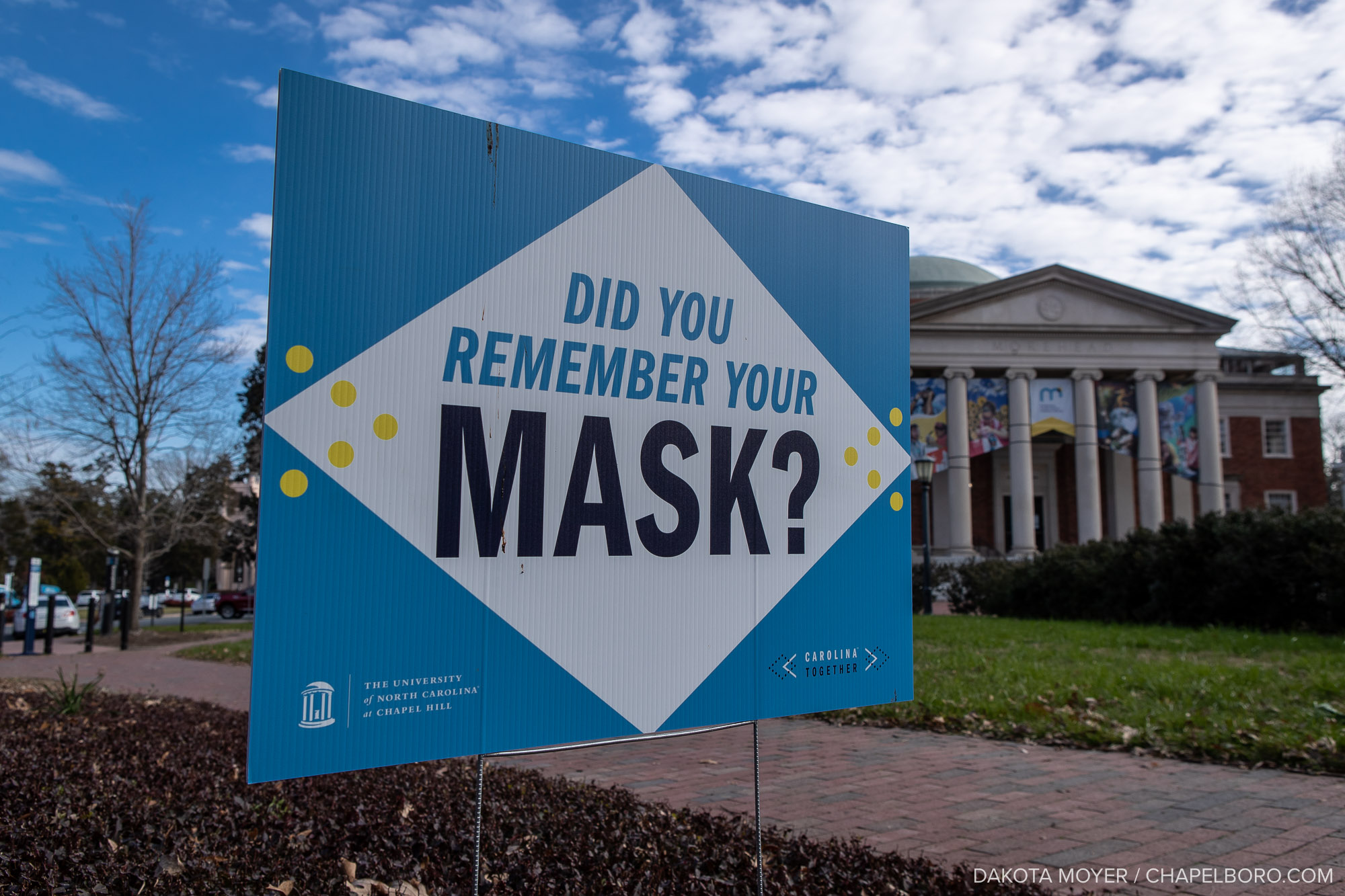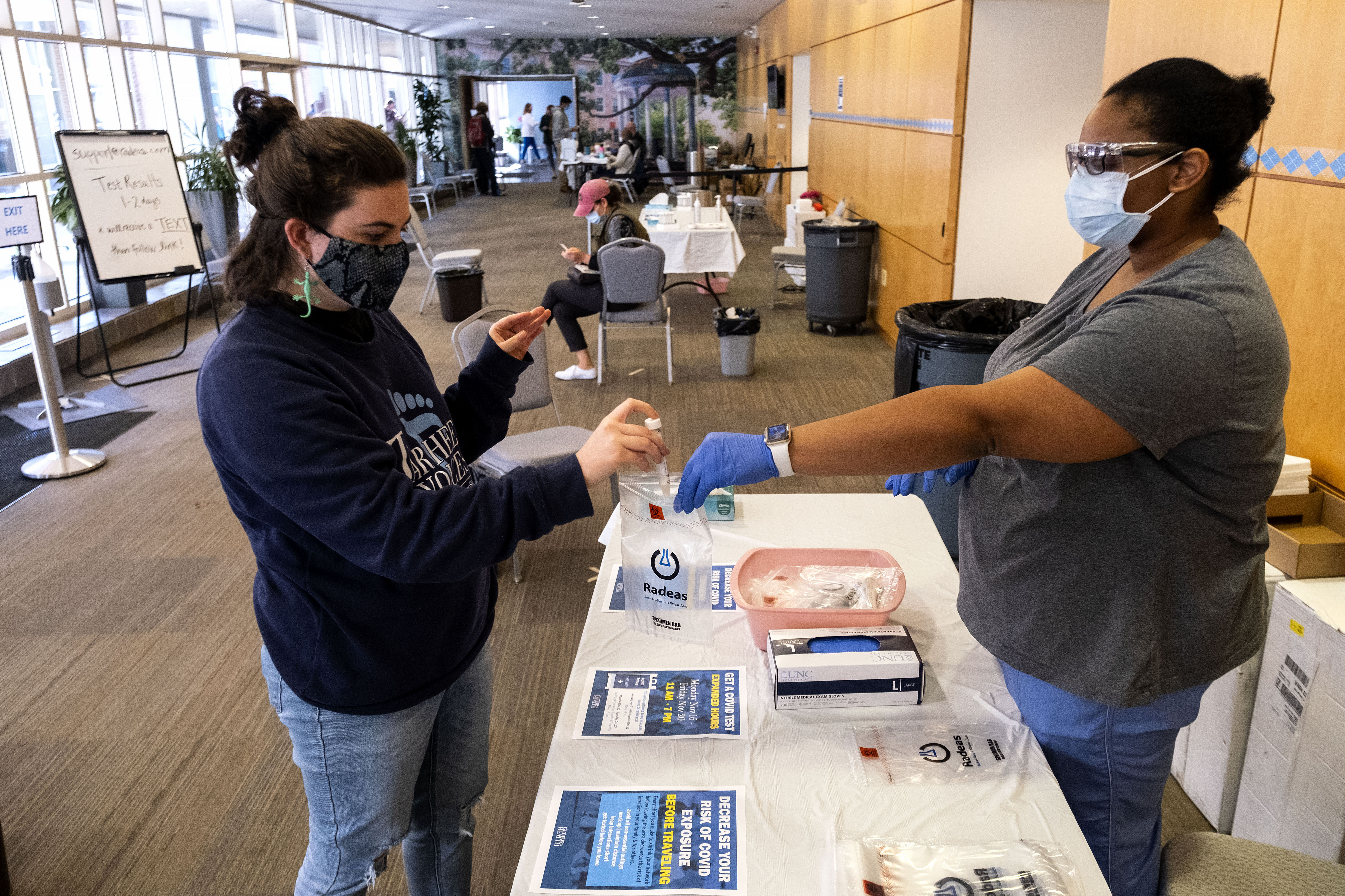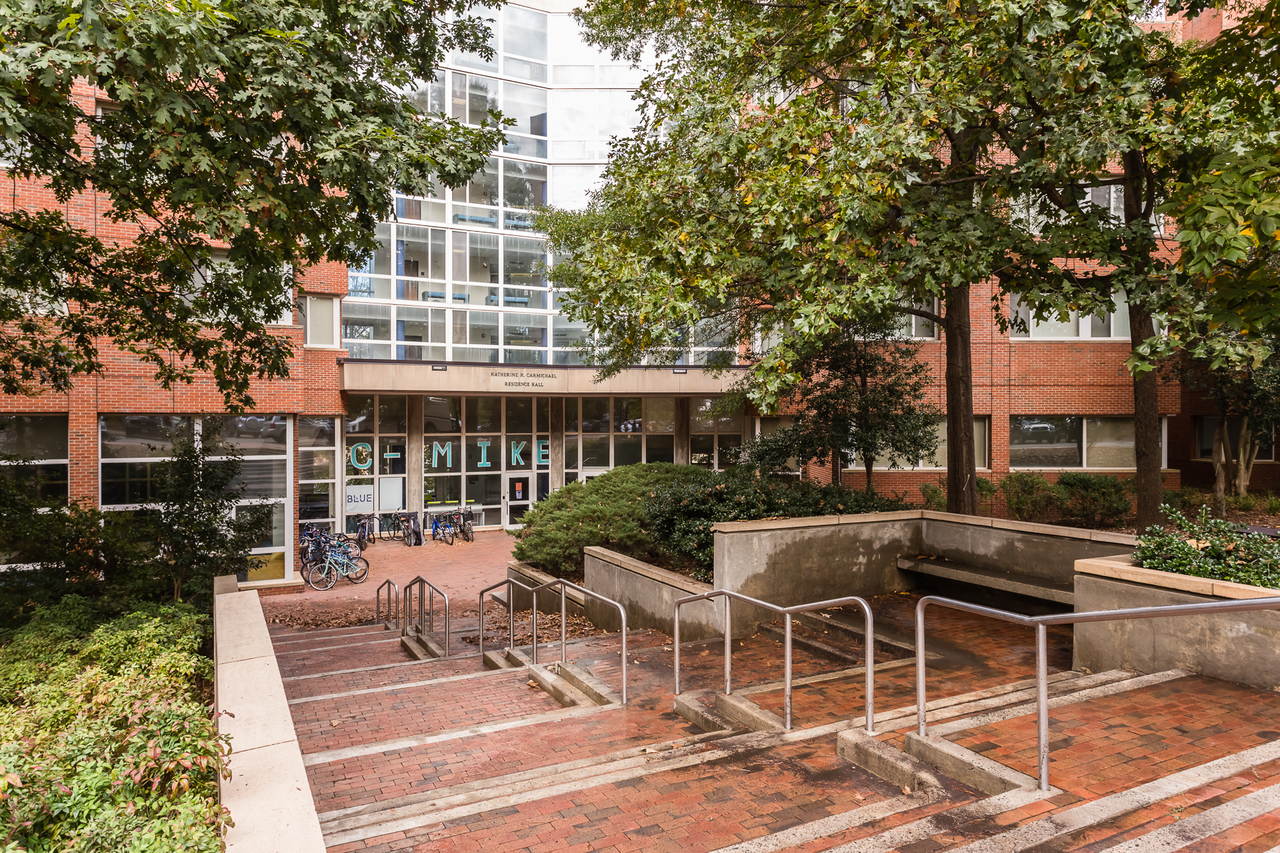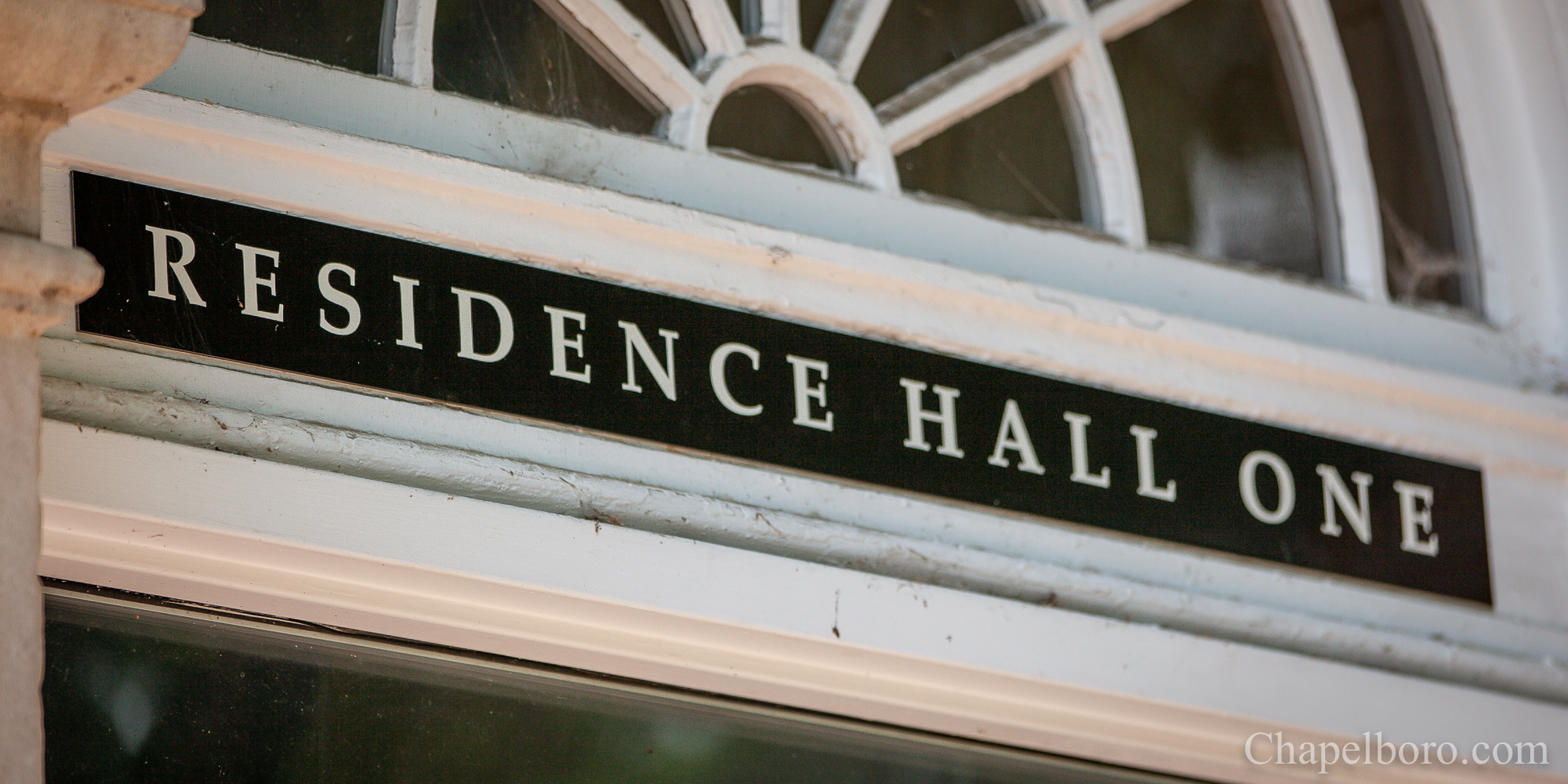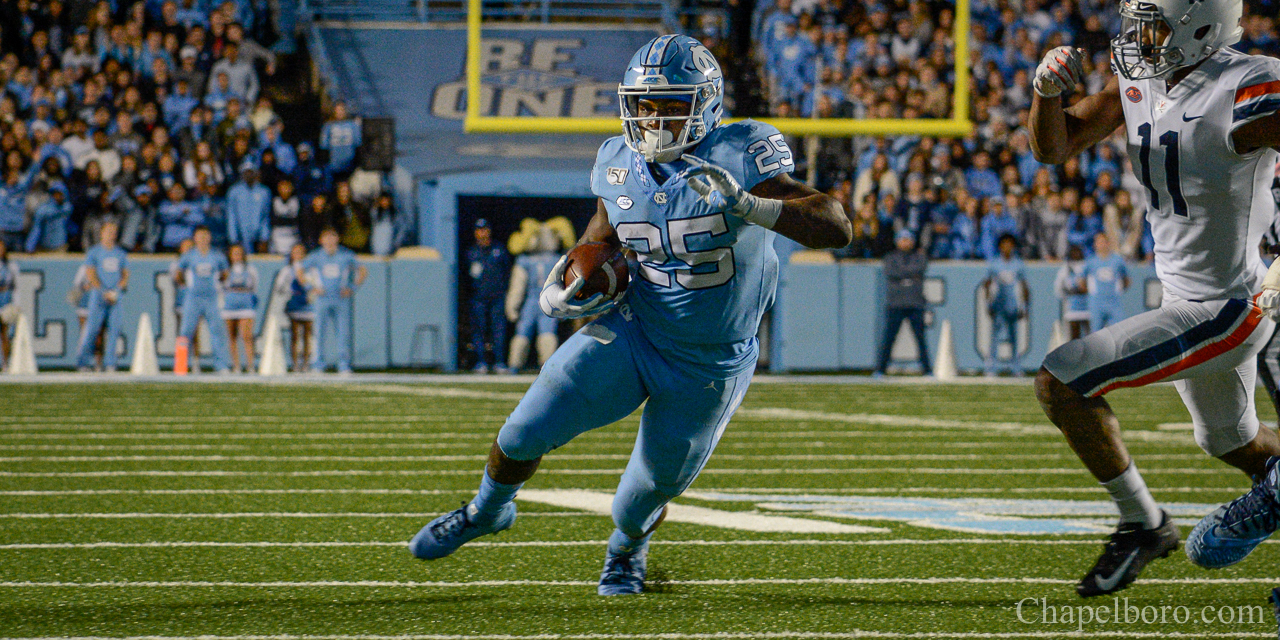UNC released its first quarterly report of compliance to the community public health standards implemented this fall semester, revealing the university removed 56 students for violations to living standards set to mitigate COVID-19.
Debuting on the Carolina Together website, the new Student Community Standards Report said UNC received 456 reports of violations to the guidelines from August 1 through October 31. This period includes when many students returned to the Chapel Hill campus for in-person instruction before an outbreak of positive cases caused the semester to go remote. Of those referrals, 324 resulted in developmental action, like written warnings, education interventions or restrictions to recreational resources. 60 cases were found to have no violation or insufficient information.
UNC Vice Chancellor for Student Affairs Amy Johnson says the data provides a comprehensive view of students’ compliance with the university standards, which is inherent to students’ enrollment status. While off-campus parties and gatherings garnered much attention during the build up to in-person classes, she says it is clear students are “overwhelmingly adhering” to the community health standards.
“What we know from the data and the contact tracing,” Johnson says, “is the significant majority of our cases came from intimate gatherings, [like] students living in congregate housing in groups of six, eight or ten. One person became infected and it quickly spread.”
In August, the spread of COVID-19 within residence hall communities led to several positive clusters being reported. Since then, the university has announced a plan for a reduced student population, required testing procedures and single-room occupancy for residence halls to allow in-person instruction for the spring semester.
While those plans address students living on campus, many students are living off-campus within the community. Testing of such students show the off-campus community still reports handfuls of positive tests each week.
Executive Director of Off-Campus Student Life and Community Partnerships Aaron Bachenheimer keeps in touch with such students living in the community. He says conversations his office has reveal students are often exposed to COVID-19 during smaller intimate gatherings, despite following the university’s guidance when outside of their living space.
“I think our students are working very hard to do that,” Bachenheimer says of following health guidelines, “and we see similar challenges with our students that we see in the broader community. Just remembering to [wear a mask] and adhering to doing that even in small gathering groups where you might feel a greater sense of security, it’s still important to understand that that’s what really prevents spread.”
With this new quarterly report, Bachenheimer says he hopes all Carolina students will be able to get a visual representation of the accountability to following UNC’s standards. While most students in the Chapel Hill area do abide by public health guidelines, he says the report may be a positive reinforcement to those actions.
“Students, and really anybody in the community, need to perceive there are going to be clear, consistent outcomes and accountability for failure to adhere to expectations,” Bachenheimer says. “That can be a very powerful prevention mechanism in the community. It doesn’t mean [punishment] needs to be severe, it means it needs to be fair, consistent and clear.”
Johnson agrees, saying the university’s goal of educating students on the health risks instead of actively punishing them is key to ultimately protecting the community.
“One of the things we are so mindful of, having dealt with various public health issues in higher education, is you don’t enforce your way out of a public health crisis,” she says. “At the end of the day, I think this speaks to the fact we are focusing our efforts on educating our community about why we have community standards and why it’s important to adhere to them and what the effects are.”
According to Johnson, the university landed on a quarterly report of potential violations providing the greater Chapel Hill area with a perspective of violation severity. Additionally, having the period cover several months helps protecting confidential student information and makes it difficult to single out a specific instance of a violation.
“It really is a balance,” she says, “to find the sweet spot of… making sure we’re communicating to our community on a regular basis about how well we’re doing and [making] sure we preserve that important job of maintaining student privacy.”
Chapelboro.com does not charge subscription fees. You can support local journalism and our mission to serve the community. Contribute today – every single dollar matters.



